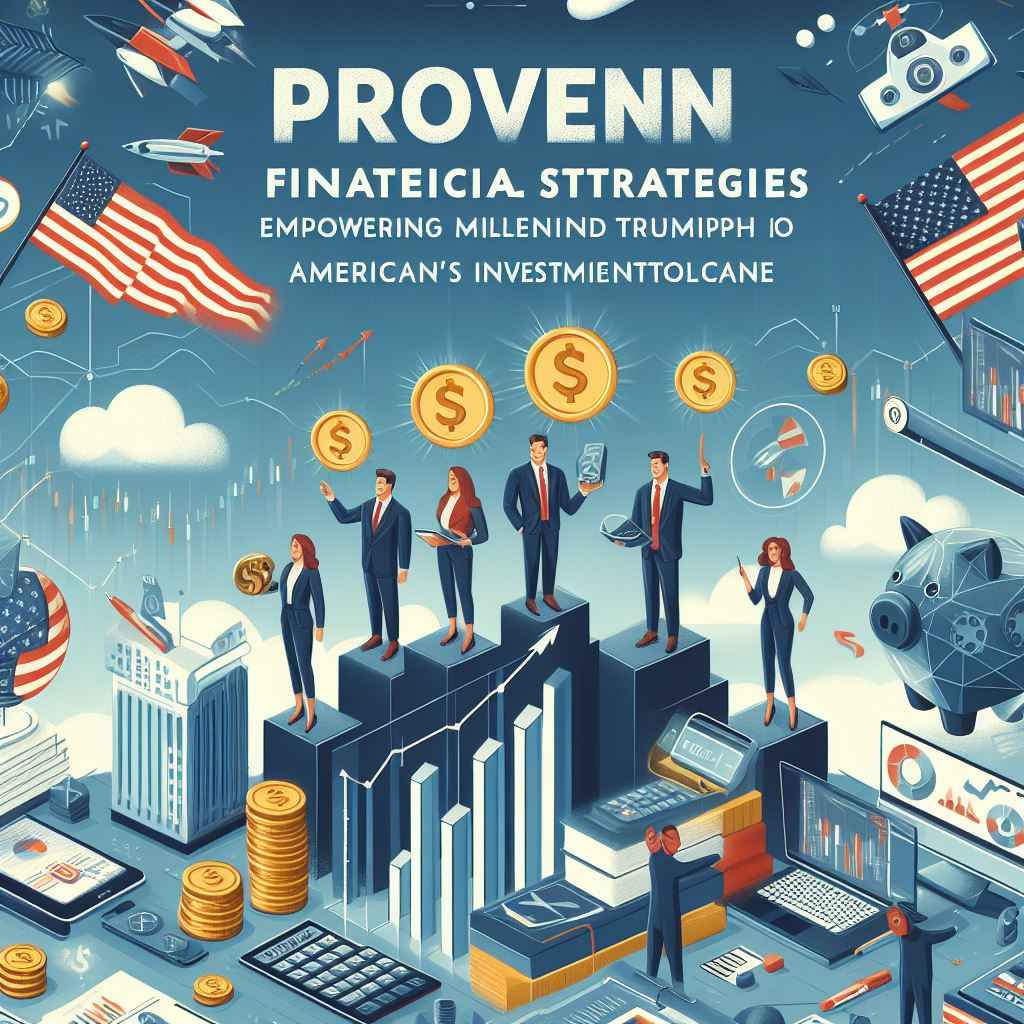Table of Contents
Introduction
Navigating the ever-evolving economic landscape of America can be a victory-laden journey for millennials who grew up during the rapid technological revolution and globalization of the 21st century. This demographic, currently between the ages of 25 and 40, possesses an unprecedented blend of technology-savviness, educational attainment, and entrepreneurial spirit. Yet, they also face unique financial challenges, including significant student debt burdens and the aftershocks of the Great Recession. To thrive financially, millennials must adopt a future-forward investment mindset that balances traditional wisdom with emerging trends.

Understanding Millennial Monetary Mindset
Millennials in America are often painted with broad brushstrokes of loving avocado toast and harbouring an aversion to commitment, be it in relationships or home buying. However, their actual financial behaviors and preferences suggest a demographic that is as diverse as it is misunderstood. They value experiences as much as possessions and are notably socially conscious, which is reflected in their investment practices. A growing number have become averse to investing in companies that don’t align with their ethical values, even if it means potentially forfeiting larger returns.
The Digitization of Investments
The digital transformation has given rise to platforms that democratize access to markets, a trend that appeals to millennials’ tech skills and need for autonomy. Apps and online platforms have made it possible for anyone with a smartphone and a bank account to engage in investing activities that were once the exclusive domain of the well-heeled, enrolled in wealth management firms. Using these tools, from robo-advisors to micro-investing apps, millennials can start building their investment portfolios with relatively small amounts of capital.
Embracing the Gig Economy
The rise of the gig economy has offered millennials flexibility and immediacy in earning opportunities. Many use freelancing and contract work as means to not only supplement income but to diversify their income streams. This bucks the trend of the single-employer career path that previous generations often took. Financially, this means a potential for higher earnings but also an increased need for personal financial management and discipline.
The Trend towards Sustainability
Sustainable investing, or ESG (Environmental, Social, and Governance) investing, has surged in popularity among millennials. They tend to favor companies that prioritize sustainability, ethical practices, and proper governance. Impact investing allows millennials to put their money where their values are, supporting not only financial growth but also contributing to social and environmental change.

The Real Estate Conundrum
For previous generations, home ownership was a hallmark of financial success and stability. However, for many millennials, surging housing prices, stagnant wages, and student debt make this goal less attainable. While some take on this challenge and succeed, others look to alternative investments, such as REITs (Real Estate Investment Trusts) to include real estate in their portfolios without the responsibilities and financial burden that property ownership entails.
Cryptocurrency and the Blockchain Revolution
Cryptocurrencies and blockchain technology represent a divisive and speculative frontier in the investment world. For every story of incredible gains, there’s a cautionary tale of significant losses. Still, these digital assets have captured the attention of a significant number of millennials, who view them as both a hedge against traditional financial systems and a potential gold mine of the future. While far from a safe bet, they represent a quintessentially millennial blend of technology and risk with the potential for high rewards.
Retirement Planning: A Hazy Horizon
For millennials, the traditional concept of retirement and pension plans seems like a relic. Many expect to work in some capacity well into their “retirement” years. The rise of self-directed retirement accounts like IRAs has allowed for more control over one’s financial destiny, with a variety of choices on where to invest retirement funds.
Debt Management as an Investment Strategy
With the burden of student loans weighing heavily on many, debt management has become a critical component of millennials’ financial strategy. Paying off high-interest debt and managing credit becomes as important as investing in stocks or real estate.

The Bottom Line
For millennials, financial planning and investment don’t exist in a vacuum. It’s part of a larger social and personal picture, involving job satisfaction, work-life balance, and social impact. They are not just investing in financial instruments; they’re investing in their futures, their values, and in many cases, the global community.
In the face of these trends and tips, one thing is clear: millennials are redefining the art of investment. To them, it’s not just about making money. It’s about making their money matter. While the broader economic landscape may shift and the specific avenues for investment may evolve, the underlying principles of good financial health remain. Spend less than you earn, save for the future, and invest wisely. With these principles, the millennial generation can navigate a path toward financial security that aligns with their unique values and visions for the future.












